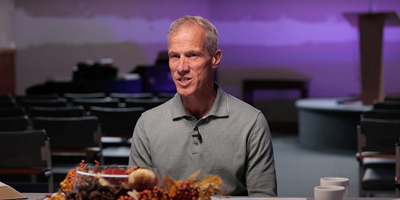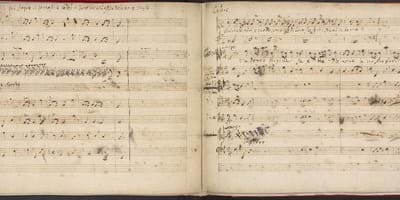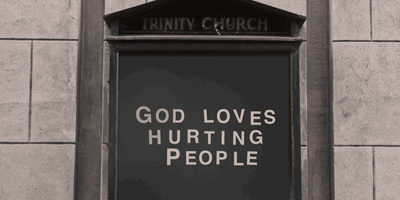Providence, in biblical terms, means that “God arranges all of the normal processes of life and all thoughts and actions to achieve exactly what He wants, when He wants, with whom He wants and where He wants.”
The words of the Lord Jesus powerfully make this point when He stated that something as cheap as a sparrow could not die outside of God’s will, “Are not two sparrows sold for a copper coin? And not one of them falls to the ground apart from your Father's will. But the very hairs of your head are all numbered. Do not fear therefore; you are of more value than many sparrows” (Matthew 10:29-31).
In summary, we could say, “Nothing ever happens by chance.”
If we believe this truth about our heavenly Father, then it should calm the anxious thoughts and fears that we have. Those concerns that keep us awake at night and cause our mind to be a fog of confusion can be given to God, trusting in His providence. No wonder that the Puritans said, “Providence is a soft pillow for anxious heads.”
Although we may feel events are out of control in our personal lives or in the world at large we can rest in the knowledge that it is all in God’s control.
This knowledge does not absolve us from our God-given responsibilities or allow us to be idle, nor does it excuse us when we commit sin, but it does help us realise that there is someone in overall control, and it is not us. Indeed, nothing that happens to us, our family and our communities can thwart the purpose of God “who works all things according to the counsel of His will” (Ephesians 1:11b).
That God works in and through the ordinary events of life to achieve His desired purpose is difficult for us to understand. Yet, He manages all things to their appointed end while hardly ever disrupting the natural order of life. His providential control of life is demonstrated throughout the Bible.
The book of Esther is a marvellous narrative that highlights the providence of God. Although His name is not found in the book God’s handiwork is clear to see.
When wicked Haman cast lots to ascertain what month the genocide of the Jews should occur it just so happened that they indicated it should be eleven months later. This allowed plenty of time for the ensuing events to occur to ensure the preservation of the Jews. “The lot is cast into the lap, but its every decision is from the LORD” (Proverbs 16:33).
When the plot to slaughter the Jews was discovered and there was an urgent need for someone to go before the king and instigate a means to foil this wickedness, it just so happened that a beautiful Jewish girl, Esther, had been installed as the queen. Truly she was in place by God’s providence “for such a time as this” (Esther 4:14b).
It just so happened that, on the night when Haman would come to speak to the king about hanging Mordecai on the gallows, the king could not sleep. It just so happened that he gave orders for a book to be read to him. It just so happened that the very pages they turned to detailed how Mordecai had foiled an assassination attempt on the king. In God’s providence Mordecai had not received, at the time, any reward for this act of service. However, the king, on this very night, decides that Mordecai will be rewarded.
It just so happened that Haman appears before the king and is asked, "What shall be done for the man whom the king delights to honour?" (Esther 6:6). Notice that he is not asked, "What shall be done for Mordecai, whom the king delights to honour?", as that would have elicited a different response from Haman. Truly God orchestrates the words from the king’s mouth.
The book of Esther is not alone in its wonderful demonstration of God’s providence. What if Joseph had been remembered by the head waiter when he was sent back to Pharoah (Genesis 40:9-15)? He might have been released and put back to service as a slave. That would have been seen as a good result but the extra time in prison, as hard as it was, was all in God’s working, so that something far greater would be achieved when he was promoted to be Pharoah’s second-in-command.
The book of Ruth has this seemingly innocuous line: “Then she left, and went and gleaned in the field after the reapers. And she happened to come to the part of the field belonging to Boaz, who was of the family of Elimelech” (Ruth 2:3). God had orchestrated events so that Ruth would choose to work in Boaz’s field, and that enabled her to meet her kinsman-redeemer (verse 20).
All the circumstances and events of life are in His providence. Nothing is outside His overall control and indeed He works all things for the believer’s ultimate good, conformity to Christ (Romans 8:18-30).
Understanding and trusting in God’s providence should bring great comfort to the soul, demolish human pride, bring joy in times of despair and produce worship to the One who is near to us but whose ways are far above ours.
Trusting in the providence of God should make the believer prayerful, not fearful.






























